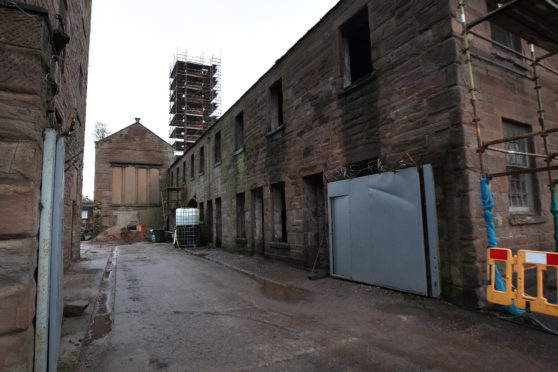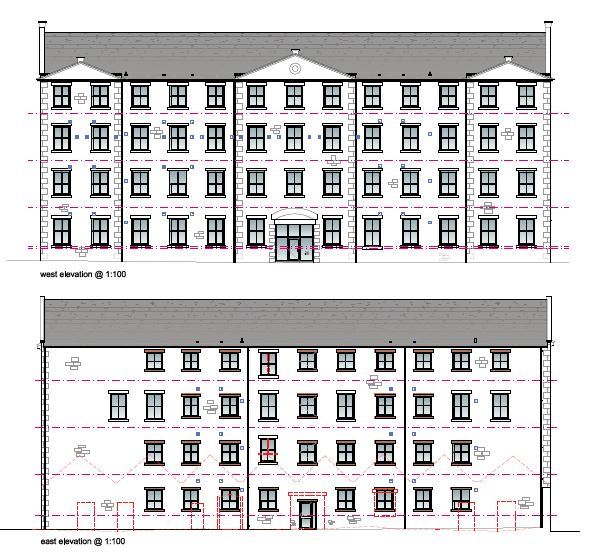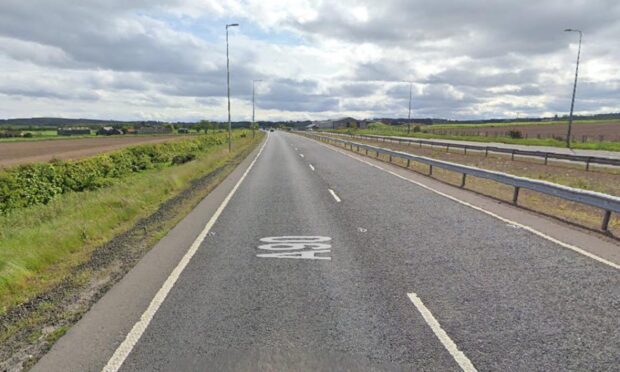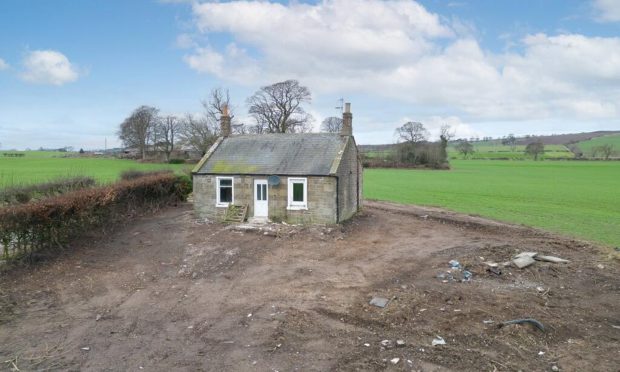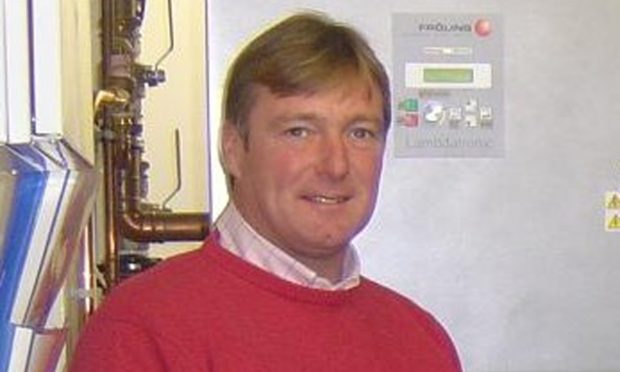Plans to transform a former Arbroath mill into 24 flats will go before Angus Council’s development standards committee on August 7.
Baltic Works was originally built in 1861 as a linen weaving factory, owned by successful manufacturer Andrew Lowson, who was the most important manufacturer in Arbroath.
Following Lowson’s death, and ill-judged overseas investments by his sons, all eight of his mills were put up for sale.
In 1905 only one of the six mills was at work, and in 1948 the firm was wound up.
Thereafter Baltic Works had a new lease of life as a whisky bond and has been empty for the last three decades.
Cullross Developments, which specialises in affordable housing, took on the development for client, Hillcrest Housing Association.
The building is one of the few remaining examples of the town’s industrial history.
It was given A-listed status, upgraded from B, in 2003 by Historic Environment Scotland.
A previous application for 24 flats and a further 16 new-builds was withdrawn after objections over flood risk.
The developer reapplied for a smaller development in the mill in January, without the new buildings.
Cullross Developments previously created the housing development on the former Dens Metal Works site at Dens Road in Dundee.
It took the project through the full design and planning permission phases before selling the site to Hillcrest.
The site includes the last mill chimney in Arbroath which was the subject of a demolition battle 10 years ago.
A planning application was put forward to demolish the chimney in order to create site access and a car park for any future residential development.
The Scottish Civic Trust and Historic Scotland objected to the demolition which was eventually refused following a two-year saga.
Baltic Mill is thought to have been named after the Baltic Sea, where ports provided flax for the weaving process.
During the Second World War it was a military training base.
